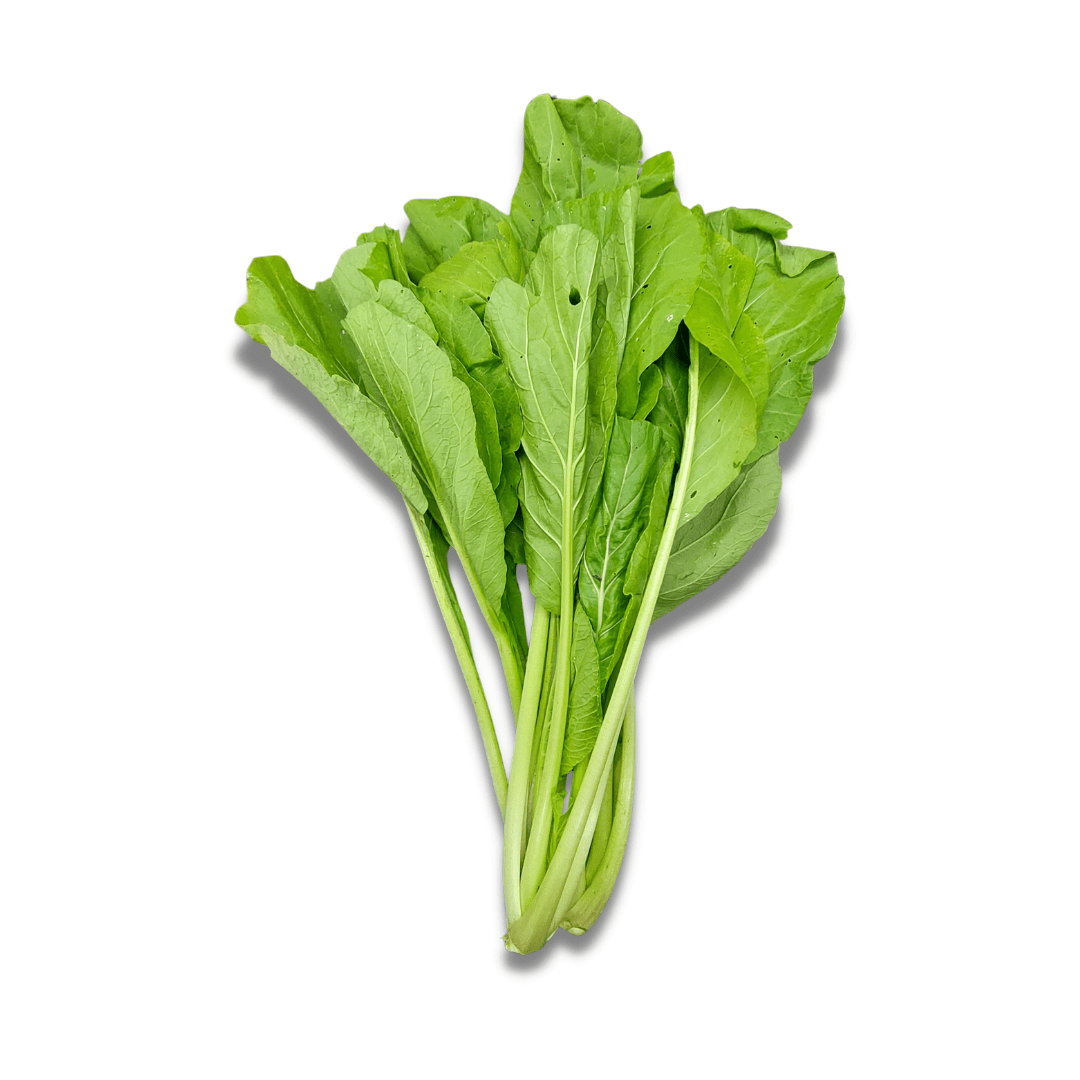About
Mustard greens are cruciferous vegetables and belong to the same family as kale, broccoli, and cauliflower. They are known for their strong and pungent flavor and are commonly used in soups, stews, and salads. Here are the health benefits of mustard greens:
Health Benefits:
-
Rich in Nutrients: Mustard greens are an excellent source of vitamins A, C, and K, as well as folate, manganese, and calcium.
-
Anti-inflammatory: Mustard greens contain compounds like glucosinolates, which have been shown to have anti-inflammatory properties.
-
Antioxidant: Mustard greens are rich in antioxidants, which can help protect cells from damage caused by free radicals.
-
Heart Health: Mustard greens contain nutrients like potassium, magnesium, and fiber, which can help support heart health and reduce the risk of heart disease.
-
Digestive Health: The high fiber content in mustard greens can help support digestive health and promote regularity.
Diseases that can be cured:
While there are no specific diseases that can be cured by consuming mustard greens, their nutrient profile and health benefits may help reduce the risk of certain conditions such as heart disease, diabetes, and certain types of cancer.
Macro Nutrient Content of Mustard Greens per serving of 50 grams:
| Nutrient | Amount |
|---|---|
| Calories | 11 |
| Carbohydrates | 2.2 g |
| Fiber | 1.8 g |
| Protein | 1.3 g |
| Fat | 0.2 g |
| Water | 46 g |
Vitamins Content of Mustard Greens per serving of 50 grams:
| Vitamin | Amount |
|---|---|
| Vitamin A | 2807 IU |
| Vitamin B1 (Thiamine) | 0.03 mg |
| Vitamin B2 (Riboflavin) | 0.06 mg |
| Vitamin B3 (Niacin) | 0.4 mg |
| Vitamin B6 | 0.08 mg |
| Vitamin B12 | 0 mcg |
| Vitamin C | 26.5 mg |
| Vitamin D | 0 IU |
| Vitamin E | 0.5 mg |
| Vitamin K | 130.5 mcg |
| Folate | 30 mcg |
| Biotin | 0 mcg |
Minerals Content of Mustard Greens per serving of 50 grams:
| Mineral | Amount |
|---|---|
| Calcium | 62 mg |
| Iron | 0.6 mg |
| Iodine | 0 mcg |
| Zinc | 0.2 mg |
| Magnesium | 14 mg |
| Phosphorus | 30 mg |
| Potassium | 187 mg |
| Sodium | 10 mg |
| Chloride | 22 mg |
| Copper | 0.05 mg |
| Chromium | 0 mcg |
| Fluoride | 2 mcg |
| Molybdenum | 0.5 mcg |
| Manganese | 0.15 mg |
| Selenium | 0.4 mcg |
What are the health benefits of mustard greens?
Mustard greens are rich in vitamins, minerals, and antioxidants, offering various health benefits, including improved digestion, heart health, and immune system support.
How to cook mustard greens?
Mustard greens can be cooked by sautéing, steaming, boiling, or adding them to soups and stews. They can be enjoyed as a side dish or incorporated into various recipes.
Is mustard greens good for weight loss?
Mustard greens are low in calories and high in fiber, making them a great addition to a weight loss diet. They can help you feel full while providing essential nutrients.
Are there any side effects of consuming mustard greens?
While mustard greens are generally safe to eat, some individuals may experience digestive issues or allergic reactions. It's best to consume them in moderation and monitor your body's response.
Can mustard greens boost the immune system?
Yes, mustard greens contain immune-boosting nutrients like vitamin C and antioxidants, which can help strengthen the immune system.
How does mustard greens support heart health?
Mustard greens are rich in antioxidants and fiber, which can help reduce cholesterol levels, support cardiovascular health, and lower the risk of heart disease.
What nutrients are present in mustard greens?
Mustard greens are a good source of vitamins A, C, and K, as well as folate, calcium, and fiber. They also contain beneficial phytochemicals.
How to incorporate mustard greens into your diet?
Mustard greens can be used in salads, stir-fries, soups, smoothies, and as a filling for sandwiches or wraps. They can also be sautéed or added to pasta dishes.
Does mustard greens have antioxidant properties?
Yes, mustard greens contain antioxidants that help protect the body against free radicals and oxidative stress.
Can mustard greens help lower cholesterol levels?
Yes, mustard greens contain compounds that can help lower LDL (bad) cholesterol levels and support heart health.
What are the different cooking methods for mustard greens?
Mustard greens can be cooked by steaming, sautéing, boiling, or blanching. They can also be added to soups, stews, or used as a flavorful ingredient in various recipes.
Can mustard greens be consumed raw?
Yes, mustard greens can be consumed raw in salads or added to smoothies for a fresh and nutritious boost.
Are there any mustard greens-based salads or soups?
Yes, mustard greens can be used as a key ingredient in salads or added to soups for a peppery flavor and nutritional benefits.
Does mustard greens aid in digestion?
Yes, mustard greens are rich in fiber, which promotes healthy digestion and helps prevent constipation.
Can mustard greens help in managing diabetes?
Mustard greens have a low glycemic index and are rich in fiber, which can help regulate blood sugar levels. However, individual dietary considerations should be discussed with a healthcare professional.
Can mustard greens be used in vegetarian or vegan dishes?
Absolutely! Mustard greens are commonly used in vegetarian and vegan recipes as they provide a versatile and nutritious option for plant-based meals.
How to store mustard greens to keep them fresh?
To keep mustard greens fresh, remove any rubber bands or ties, place them in a plastic bag with a paper towel to absorb excess moisture, and store them in the refrigerator's vegetable compartment.
Can mustard greens be sautéed or added to stir-fries?
Yes, mustard greens can be sautéed with garlic, onions, or other vegetables, or added to stir-fries for a tasty and nutritious addition to your meal.









